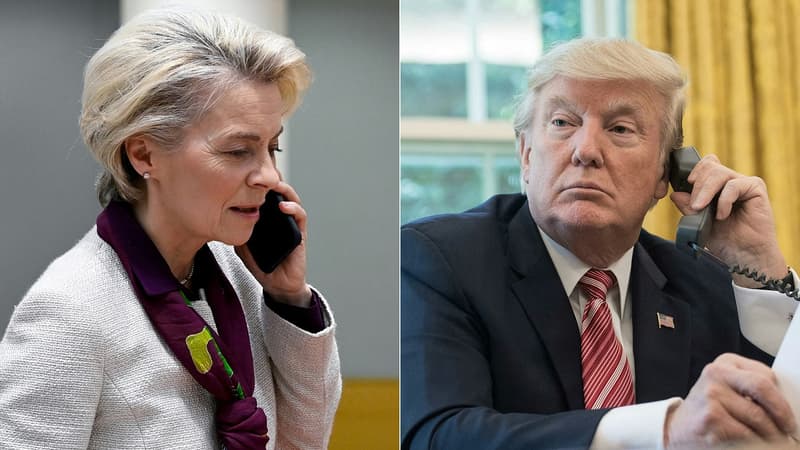Commercial negotiations do not increase in a favorable sense in the European Union according to Bloomberg, two weeks after Donald Trump threatened to impose customs taxes of 30% in block exports to the United States since August 1.
Brussels still hopes to reach an agreement, but Donald Trump demands these new concessions, while the EU hoped to get out of it with a 10% rate in most products and exemptions in certain key sectors such as aeronautics or automotive.
The basic price could now be more than 10%. According to the Wall Street Journal (WSJ), the latest discussions revolve around a customs barrier of 15% or more, while exemptions are limited to the congruent part.
Germany, who argued that he will find a quick agreement by not getting too much angry at the American ally, hardens the tone according to the WSJ and is closer to the French position, less complacent with the wishes of President Trump.
“If they want the war, they will have it,” said a German official to the American newspaper, while the United States would not want to relieve cars in cars. They currently amount to 25%. Therefore, Germany would be tempted to approach the position of France that has been asking for a few days to raise its tone and threaten the United States with very hard reprisals with the commercial “bazuca”.
Given the growing difficulties in the Chinese market, the German industry depends more and more in the United States, its first client, who launched a record commercial surplus last year (71.4 billion euros). Donald Trump justifies his protectionist policy by pointing out the magnitude of this surplus and exerts pressure on European industrialists to install their factories in the United States.
Anti-coercion instrument
While attempts at appeases did not allow to appease the fury of the White House, therefore, more and more officials expect the EU risposte.
A first time of countermeasures has already been approved. It provides customs barriers noted for 21 billion euros in American products, such as soybeans or poultry. Its entry into force was suspended until the end of the negotiation, provided for in this stage in early August.
Another plan has also been prepared, with additional 72 billion euros. It would significantly go to Boeing aircraft.
On the other hand, the EU judges that American customs barriers are related to 380 billion euros in European products.
Some states, such as France, press to activate the “anti-coercion instrument” to go further and restrict access to European public procurement or block certain investments. This week a meeting must be held among those responsible for 27 to prepare for the possibility of failure for negotiations.
Source: BFM TV


